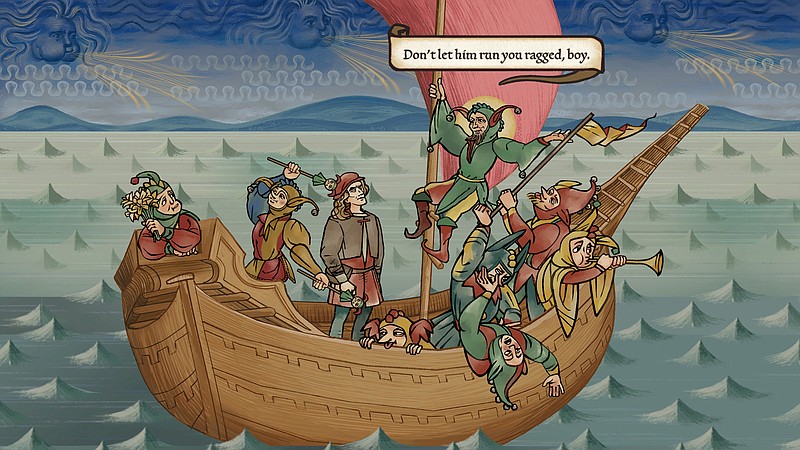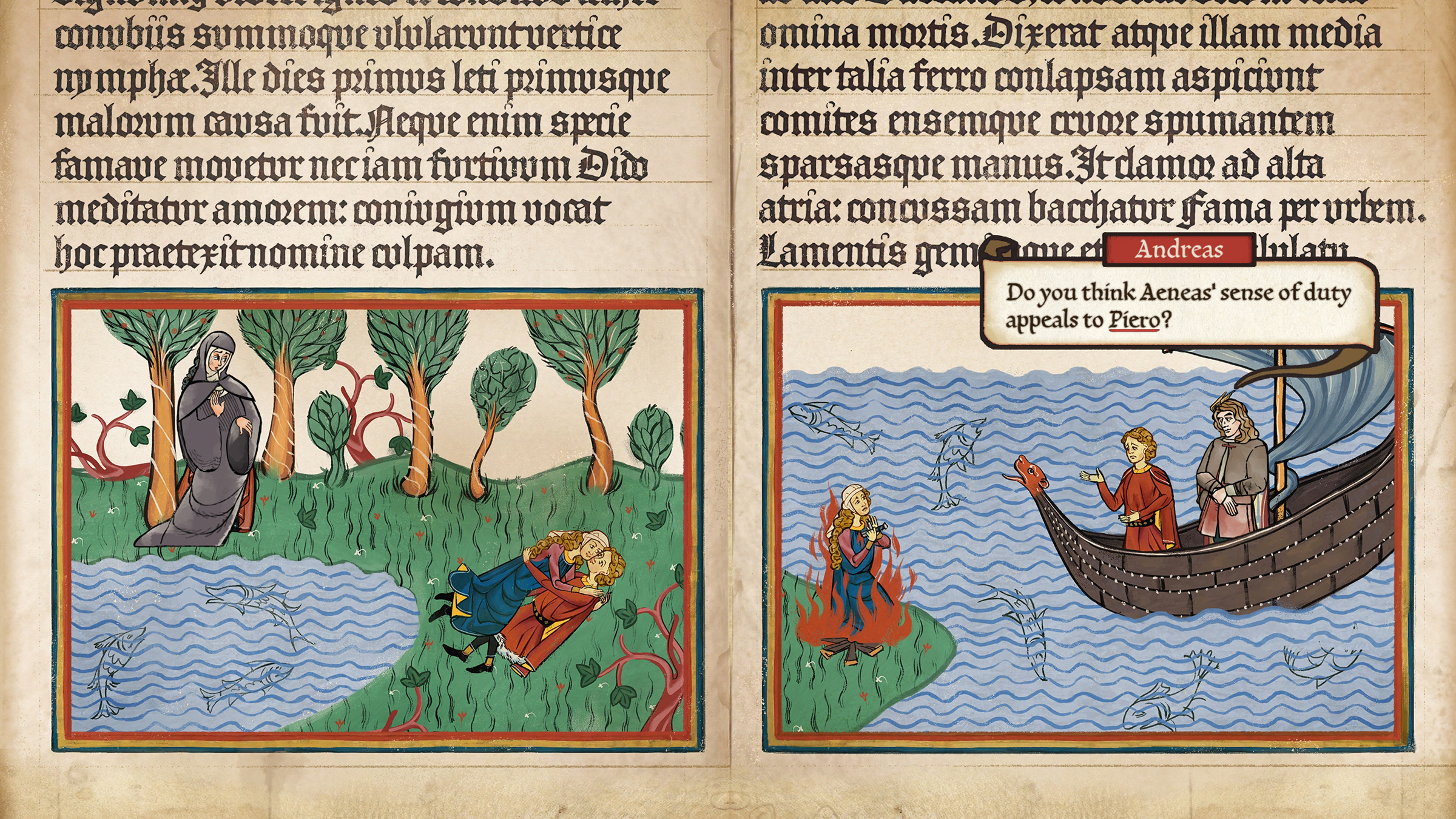Pentiment
- Platform: Windows, Xbox
- Cost: $19.99
- Rating: Mature for blood, and gore, sexual themes, strong language, violence
- Score: 9 out of 10
"Pentiment," a historical-mystery role-playing game, ably transports the player back to the early Renaissance period. Set in 1518 Bavaria (today, southern Germany) in the fictional village of Tassing, the game takes place during the transition from Middle Ages to modernity.
Players take on the role of Andreas Maler, a journeyman artist working in the scriptorium of a Tassing abbey, spending his limited free time working on his masterpiece so that he can be considered a full-fledged master artist and then take on a wife.
Andreas is an illuminator, which even in 1518 was a dying art form. Illuminated manuscripts are handwritten books that were produced in Western Europe between the 6th and 17th centuries. These manuscripts are called "illuminated" because they were decorated with illustrations and decorations that often were embellished with gold, silver and vibrant colors. This was an incredibly expensive undertaking that could take months or years to complete, with the artists using a range of skilled techniques and pigments to create the illustrations along the borders of the pages.
And if you love learning little historical tidbits like that, "Pentiment" might really appeal to you.
"Pentiment" immediately sets itself apart from virtually every other game in existence because the game itself is drawn in the flat but highly stylized and ornate style of an illuminated manuscript that Maler helps create.
Whenever someone's name is mentioned in one of Andreas' conversations, it will be underlined in red. Clicking on that name will pull back the scene and show that the game itself is sort of taking place inside an illuminated manuscript page, with the margins filled with information about the underlined person, such as an image of them and some details about who they are. Famous historical places and events get the same treatment, filling players in on details about 1600s Europe they likely didn't know but a scholar like Andreas would.
Even the text boxes from the game's many conversations contribute to the early Renaissance feel, as they feature a variety of scripts and fonts based on the person's social class. A peasant's responses will be in a handwritten script; the printmaker's resembles mechanical type, while a high-ranking church official's responses are in blackletter, a bold, nearly unreadable Gothic script that was used in Western Europe during the Renaissance. (Players who find the default scripts challenging to read can change them into something more legible in the settings.)
Andreas' days as a simple artist are numbered, however, as a visiting nobleman turns up dead; a mentor of Andreas is accused of the murder; and it's now a race against time to find the true killer.
Andreas must convince people to talk to him in a town where suddenly everyone has a lot of secrets, and there are a lot more macabre rabbit holes to wander down than there are hours in the day to explore them.
In the early game, players will also choose Andreas' overall background, such as what languages he knows and what he studied at university, which might range from theology and Biblical studies to occultism or law. These background picks will unlock dialogue options from certain characters, such as being able to quote the Bible back at religious folk, or make a convincing legal argument.
There are no perfect choices — all will come with benefits and downsides.
"Pentiment" takes place in three acts, spanning the course of decades, and many of the choices Andreas makes will have long-lasting ramifications to the story, characters and their perception of him, giving "Pentiment" replay value to explore other backgrounds and avenues of inquiry.
[Video not showing up above? Click here to watch » arkansasonline.com/58pent/]
One thing players might find frustrating is that Andreas is making choices whose outcomes are unclear. A choice might seem like the right answer to unlock a secret, but instead it angers someone immediately or has consequences down the road. However, that does seem to be how real-life works pretty often.
"Pentiment" talks a lot about medieval history that I suspect many won't be familiar with, so I love its concept of allowing players to click on those terms and read a short definition or summary. It allows for the game to be a lot more history-heavy and not reliant on players' already having sufficient knowledge of 14th-century Italian painters or the economic conditions of Belgium.
Overall, "Pentiment" takes 15 to 20 hours to complete, and like many of the now-priceless illuminated manuscripts of the time, is a work unique unto itself.


